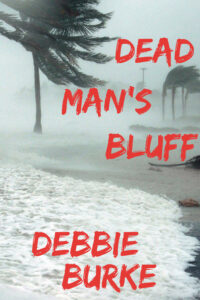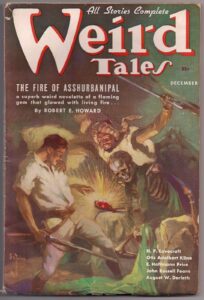Another Brave Writer submitted his/her first page for critique. My comments will follow. Enjoy!

The Smoke Eater
Reid never witnessed a sunset out of the plane, but the moment was a testament of god’s creation. He was amazed by the radiant heaven through thin clouds of twilight where the earth and sky merged into the silver-black horizon.
Above the horizon was a spectrum of a blue dark glass, teasing the twilight of angels above. Underneath, the fading glow of what lingered on the terrain was smothered by the dark. It was a cruel but beautiful waltz between a master darkness and its mistress of the light. The horizon slowly narrowed, and the radiance ran parallel to its ruthless nocturnal predator that grew with virulence. What was left of the fading light seemed to be distorted as if an imaginary barrier was blocking the warmth from reaching Reid?
He wondered if it was the trick of the glass, but his inner being that wouldn’t allow for comfort. Deep down, he struggled with the truth that he could be easily smothered by his own darkened fear just like the nighttime drape smothering the day.
Reid turned his head at the sound of a woman’s voice and quickly said, “If I fall asleep, please be careful with me.”
The stewardess frowned and tilted her head.
Reid sensed she didn’t understand and he didn’t know what to say. Telling this woman that he could become violent when he slept didn’t seem like the right thing to do but he had to say something. He was struggling to stay awake and he refused to take the medication with only a few hours left in the flight.
Reid didn’t know how much longer he could stay lucid. “If you need to wake me, give me a nudge, or throw something small at me, and stand back. I startle easily… in my sleep.”
The stewardess stood there, indifferent.
Reid was starting to feel uneasy, that he might have said too much. He told himself, how stupid could I be, that he essentially told an airline attendant that he was a threat, admitting that she needed to avoid him should he become violent. Then he realized that it was worse, he just acted strangely on a middle eastern airline that was passing into Asia. He might as well have yelled out that he was carrying a bomb.
* * *
Intriguing, isn’t it? There’s a lot to love about this first page. The concept of a MC who’s violent while he sleeps piqued my interest right away. It also raised numerous story questions. Why is he dangerous while he sleeps? What happens to the unfortunate people around him if he drifts off? Could he kill? Has he killed before? How does he know he’s dangerous if he’s asleep?
Bravo, Brave Writer, for not telling us yet! “Something” happened in the MC’s life prior to this flight, and we’ll keep flipping pages to find out what that is. Great job!
Now for the technical stuff…
When I received the unformatted first page, I broke up the text into more manageable paragraphs. The lack of formatting could be caused by copy/pasting into the body of an email. In case the manuscript’s littered with large chunks of text, please remember white space is our friend. Transitions are also vital to keep the reader engaged. For more on these two areas of craft, see Jim’s post and Terry’s post.
Paragraph 1:
Reid never witnessed a sunset out of the plane, but the moment was a testament of god’s creation. He was amazed by the radiant heaven through thin clouds of twilight where the earth and sky merged into the silver-black horizon.
The first line isn’t bad, necessarily, but it also doesn’t draw me in. Plenty of folks haven’t flown before. That in and of itself isn’t intriguing, thought-provoking, or emotional. It’s only after we read the first page that we can envision why this plane ride could turn deadly, and that’s too late.
Paragraph 2:
Above the horizon was a spectrum of a blue dark glass, teasing the twilight of angels above. Underneath, the fading glow of what lingered on the terrain was smothered by the dark. It was a cruel but beautiful waltz between a master darkness and its mistress of the light. The horizon slowly narrowed, and the radiance ran parallel to its ruthless nocturnal predator that grew with virulence. What was left of the fading light seemed to be distorted as if an imaginary barrier was blocking the warmth from reaching Reid?
Beautiful imagery, but the writing could be tighter. By rearranging words and deleting filler, we paint a clearer picture.
Above the horizon was a spectrum of a blue dark glass, teasing teased the twilight of angels above. Underneath, the dark smothered the fading glow of what lingered lingering on the terrain was smothered by the dark. It was a cruel but beautiful waltz between a master of darkness and its mistress of the light (<– love that line!). When tThe horizon slowly narrowed, the sun’s ruthless nocturnal predator overshadowed its and the radiance ran parallel to its ruthless nocturnal predator that grew with virulence. What was left of the fading light acted as seemed to be distorted as if a an imaginary barrier was blocking the warmth from reaching Reid’s face.?
Paragraph 3:
He wondered if it was the trick of the glass, but his inner being that wouldn’t allow for comfort. Deep down, he struggled with the truth that he could be easily smothered by his own darkened fear just like the nighttime drape smothering the day.
“Wondered” is a telling word. For more on deep POV, check out a previous 1st Page Critique. “Inner being” also struck me as an odd choice. My suggestion would be to rewrite these two sentences.
Quick example: Is it a trick of the glass? Why, with the breathtaking view before him, could he not relax? The truth caved his stomach. If he weren’t careful, the darkness within him could smother his light, too. (Still not great, but you get the picture.)
All the last two paragraphs need are a couple tweaks to deepen the point of view. Easy peasy. Let’s do it. Changes are in red.
Reid turned his head at the sound of a woman’s voice, and quickly said, “If I fall asleep, please be careful with me.”
The stewardess frowned and tilted her head. Reid sensed She didn’t understand. Not many people did. How could he tell a stranger he could violent when he slept? and he didn’t know what to say. Telling this woman that he could become violent when he slept didn’t seem like the right thing to do but he had to say something. He was Struggling to stay awake, and he refused to take the court ordered (if it fits the story) medication with only a few hours left in the flight. But what if he couldn’t stay lucid? Reid didn’t know how much longer he could stay lucid.
With no easy way around it, he said, “If you need to wake me, give me a nudge, or throw something small at me, and stand back. I startle easily… in my sleep.”
The stewardess stood there, indifferent.
Reid was starting to feel uneasy (don’t tell us, show us! Is he fidgeting? Picking at his cuticles?), that he might have said too much. He told himself, how stupid could I be, Stupid, Reid, stupid. You just told a flight attendant you’re a threat. that he essentially told an airline attendant that he was a threat, admitting that she needed to avoid him should he become violent. Oh, no! He’s on a middle eastern airline heading to Asia (btw, Asia’s too broad. Tell us where the flight’s landing.). She probably thinks he’s got a bomb strapped to his chest. Then he realized that it was worse, he just acted strangely on a middle eastern airline that was passing into Asia. He might as well have yelled out that he was carrying a bomb.
Brave Writer, take a moment to look closer at this critique. For the most part, all I did was rearrange your words and delete filler. This first page works because of your hard work. Stand proud. And thank you for submitting an excellent first page.
Over to you, TKZers! Would you flip the page? What’s your favorite line? Any suggestions/comments for Brave Writer?


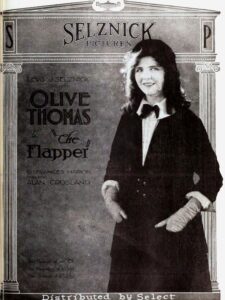
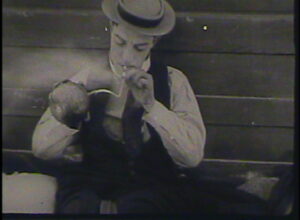
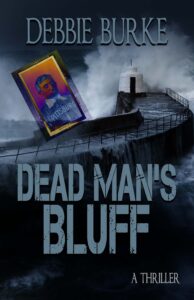
 Another brave writer submitted their first page for critique. My comments will follow.
Another brave writer submitted their first page for critique. My comments will follow.

